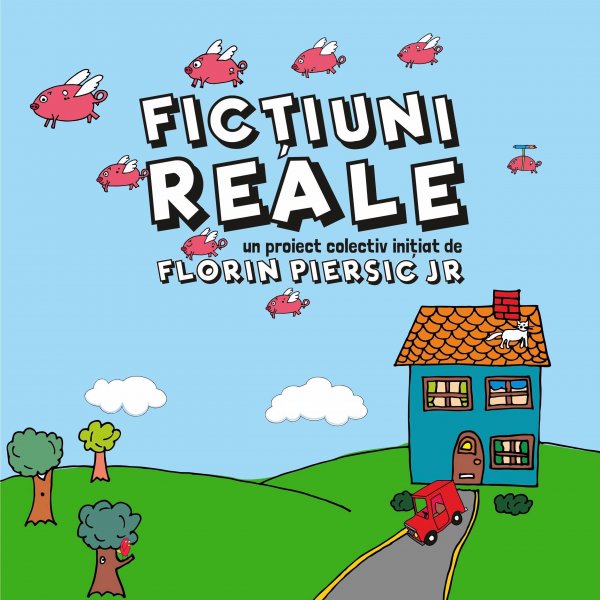Ionuț Tuhoarcă
I was imprisoned. To survive, I had to steal, fight, and do pretty much everything else the strangers living there did. I made friends with some, but also became the enemy of others, only to make friends with the latter in the end too. Stealing from one another was routine. So were the fights. Cigarettes were important, as well as the coffee and food brought to us from home. When someone got out, we'd send them get drinks. If they managed to bring back some, we had fun. If not, we still had fun. If not for the fights, the pills and the rope, I would have stayed more.
Florina Hegedüs
Don't be afraid, he said, tearing up as he left me there. The passers-by would stop and narrow their eyes at me, thinking God knows what, and then they'd move on. The sun would shine down on me during the day. In the evening, a drunkard would talk to himself about me. I felt like a strange spectacle, constantly exposed, as if people's gazes stripped me bare. Some took pictures of me and then tried to find out who I was. How could they know? It was my first appearance, a stranger among strangers. Luckily, the young man with the delicate hands came one day. He took me with him and introduced me to all his friends. A bunch of avid readers.
Ionuț Morariu
The ones who decided were God and the Russians. They chose who died, who walked the road to Siberia, and who was allowed to stay in his ancestors' home. Others, might have been 36 times 36 people, heeded a different call. They lifted their children up in carts, carried their dead in their thoughts, and took the path of refuge. There was no Moses to divide the waters of the sea for them. They wandered alone through a land of shadows called Romania. Some people helped them, but many just spat words at them: strangers. But even their insults tasted like honey. Because a man with no home is always a stranger.
(Translated by Lucia-Alexandra Brînaru-Mitrofan / University of Bucharest, Faculty of Foreign Languages and Literatures, MTTLC, year II / Corrected by prof. dr. Nadina Vișan, Edited by Silvia Petrescu, coordinator of the translations)
Real Fiction is a collective project started in 2013 by Florin Piersic Jr. The concept of Real Fiction continued to exist as a Facebook group, after a volume of stories was published at Humanitas Publishing House. (In March 2024, the group has 12,800 members.) The authors write ultra-short stories, with the texts limited to 500 characters (in Romanian, so the length of the English translation might be a little different) - a flash-fiction exercise on a topic that changes every few days. The group's coordinators are Florin Piersic Jr., Gabriel Molnar, Răzvan Penescu, Luchian Abel, and Vlad Mușat. (Drawing by Adrian T. Roman)
Versiunea în română a acestui text se poate citi aici, în rubrica Ficțiuni Reale.
Among Strangers
Ionuţ Tuhoarcă, Florina Hegedüs, Ionuţ Morariu, translated by Lucia-Alexandra Brînaru-Mitrofan
0 comentarii
Arhiva rubricii
How Did I End Up Here?, Iulia Biró, Raluca Terry-Enescu, Alina Ilie, translated by Adriana-Maria BoteaHow Did I End Up Here?, George Dometi, Iulia Vîși, Titela Durnea, translated by Adriana-Maria BoteaHow Did I End Up Here?, Lucian Pătru, Iulia Stavre, Ramona Ungureanu, translated by Adriana-Maria BoteaHow Did I End Up Here?, Arthur Ianoși, Elena Fermuș, Carmen-Ecaterina Ciobâcă, translated by Marian-Cătălin NiculăescuHow Did I End Up Here?, Cecilia Fofiu, Yuka Brevi, Sanda Burță, translated by Marian-Cătălin NiculăescuToate articolele din această rubricăPublicitate
